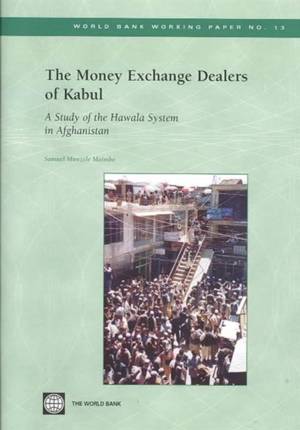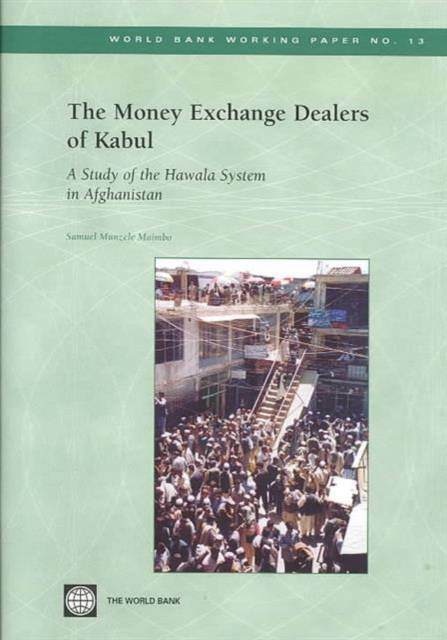
- Afhalen na 1 uur in een winkel met voorraad
- Gratis thuislevering in België vanaf € 30
- Ruim aanbod met 7 miljoen producten
- Afhalen na 1 uur in een winkel met voorraad
- Gratis thuislevering in België vanaf € 30
- Ruim aanbod met 7 miljoen producten
Zoeken
The Money Exchange Dealers of Kabul
A Study of the Hawala System in Afghanistan
Samuel Munzele Maimbo
€ 11,95
+ 23 punten
Omschrijving
'The Money Exchange Dealers of Kabul' is an exploratory piece of research on how the informal financial sector operates in conflict-afflicted countries. This paper presents the findings, analyses and conclusions of a study on the operational characteristics of an informal funds transfer system found in Afghanistan, generally referred to as hawala. It describes the system's geographic characteristics, convenience, effectiveness, cost, and its relationship with the formal financial system. It studies the domestic transfer of development funds by international aid institutions and nongovernmental organizations and discusses the hawala system's benefits as well as the operational characteristics that make it vulnerable to abuse. Finally, it presents the authors conclusions on the developmental role of informal financial institutions in the Afghan financial system; the implications for financial management practices of donor-financed development programs; and the regulatory and supervisory options for Da Afghanistan Bank.
Specificaties
Betrokkenen
- Auteur(s):
- Uitgeverij:
Inhoud
- Aantal bladzijden:
- 46
- Taal:
- Engels
- Reeks:
- Reeksnummer:
- nr. 13
Eigenschappen
- Productcode (EAN):
- 9780821355862
- Verschijningsdatum:
- 20/08/2003
- Uitvoering:
- Paperback
- Formaat:
- Trade paperback (VS)
- Afmetingen:
- 174 mm x 230 mm
- Gewicht:
- 104 g

Alleen bij Standaard Boekhandel
+ 23 punten op je klantenkaart van Standaard Boekhandel
Beoordelingen
We publiceren alleen reviews die voldoen aan de voorwaarden voor reviews. Bekijk onze voorwaarden voor reviews.











